“Ultimately, Germany has only gained from it.”
The Dual Career in the USA: Two Student-Athletes in a Double Interview
To kick off the new year, 800m runner Lorenz Herrmann and heptathlete Jenna Fee Feyerabend took the time to talk about their dual careers in the USA. Both have been living abroad for several years, successfully balancing their studies and elite sports on a daily basis. In this interview, they share their experiences, give advice, and aim to inform others. They also address the challenges of pursuing a dual career in Germany and the differences compared to the USA.
Jenna Fee Feyerabend, 23, is originally from Groß-Gerau (Hesse). She moved to San Diego in 2021, where she studies journalism.
Lorenz Herrmann, 24, grew up in Landau (Palatinate). He moved to the University of Idaho in 2020, where he completed his bachelor’s degree in Operations Management and is now pursuing a master’s in Environmental Science.
What differences do you see between pursuing a dual career in Germany and in the USA?
Feyerabend: When I compare myself with my friends back home, the level of security and consistency of support in Germany just isn’t the same. Every year you’re faced with the same questions: Will I get funding? Will I find sponsors? Are there people around me willing to support me out of goodwill? It’s different here in the U.S. — I’ve never once been afraid of not getting by financially.
Mr. Herrmann, you decided to go to the U.S. in 2020, at the height of the pandemic. Did you have any doubts?
Herrmann: Of course, I had doubts at first about moving so far away during such an uncertain time. Nobody knew how things would turn out. But in the end, I decided to go — and looking back, it was the best decision I could have made. In the U.S., we at least had some in-person classes thanks to a hybrid model, where half the students attended on campus and the other half joined online. In Germany, students practically didn’t see a university for two years.
Ms. Feyerabend, why did you decide to pursue a dual career in the U.S.?
Feyerabend: 2021 was a really tough year for me, also because of COVID. I asked myself: If I start studying now, how will that work with my athletics and everything else? I knew I didn’t want to join the police, the army, or customs — which really limited my options in Germany. It was a family decision to think beyond Germany. That was emotionally very difficult because I had never imagined leaving home.
You both received athletic scholarships. Did you have to apply for them?
Herrmann: In Germany, there’s an agency called “Scholarbook.” They reach out to young athletes and ask if they’re interested in studying in the U.S. with a sports scholarship. Ultimately, your past athletic performance determines eligibility. Then there’s an interview, and the agency contacts coaches in the U.S. You get added to a database, and the coaches reach out to you.
Feyerabend: It’s a bit like the transfer market in professional soccer — or a modeling agency. I was completely overwhelmed at first, but with Scholarship’s help, I found a great university.
What requirements must you meet to keep your scholarship?
Feyerabend: If we fall below a certain GPA, we get “cut” — meaning we’re not allowed to compete.
Herrmann: (laughs) Yeah, but honestly, if you put in even a bit of effort, it’s hard to fall below that GPA. They make sure that doesn’t happen.
Are there also minimum athletic standards you must maintain?
Feyerabend: At my university, you don’t lose your scholarship unless you fail to perform for several years in a row. But that’s only because I’m part of a very family-oriented program.
Herrmann: It’s similar for me. I don’t think anyone’s ever lost their scholarship due to poor performance. It’s more likely to happen if someone skips practice and doesn’t live like a serious athlete.
How does your university support you in balancing sports and academics?
Feyerabend: I have an academic advisor and an athletic advisor. My academic advisor sets up my schedule and even calls my coach to check if everything fits.
Herrmann: At the start of each season, we get a letter listing all our competitions. We hand it to our professors, and they have to excuse us from classes on those dates.
Ms. Feyerabend, you were part of the German national team for a long time. After moving to the U.S., you lost your place. How did you handle that?
Feyerabend: That was hard for me. I’d always been on the national team. Then suddenly, all funding stopped — even though I spend three months a year in Germany, still compete, and even represented Germany last year. It felt like the system was rejecting me. I didn’t choose against the system; I just chose to pursue a degree so I can have a career after sports. That hurt. But I had many friends who also went to the U.S., so it was okay in the end. I think athletes like Leo Neugebauer (Olympic silver medalist in the decathlon in Paris 2024, who had a scholarship at the University of Texas at Austin) are helping to change perceptions about studying in the U.S. — and that will help many athletes.
Would you recommend pursuing a dual career in the U.S. to young athletes?
Herrmann: Athletically, it’s helped me tremendously. I’ve improved my 800m time by five seconds. But even if it hadn’t gone that well, it still would’ve been the best decision of my life. I’ve met so many great people, had amazing experiences, and now speak fluent English — that never hurts (laughs). I can recommend it to everyone.
Feyerabend: This is really close to my heart. I believe the best way to support athletes is by informing them about the opportunities available here. We need more education about the U.S., more cooperation between the German Athletics Federation and American universities, or at least better support for athletes abroad so they don’t feel left alone. You should be able to be part of the German team no matter where you live. That’s globalization — that’s just life today. So yes, I’d definitely recommend it.
In what ways can the German Athletics Federation benefit from athletes studying in the U.S.?
Feyerabend: I think Germany only stands to gain. I would never have developed the way I have without coming here, and I wouldn’t have been able to earn valuable points for Germany in competitions. In the end, Germany benefited — they didn’t have to invest any money in me, and I still improved while continuing to represent my country. That’s where my heart is. You grow as a person and as an athlete, and you feel genuinely appreciated.
Are there any downsides to pursuing a dual career in the U.S.?
Feyerabend: There’s the danger of being dazzled by big universities with huge budgets and endless resources. You can be overworked by competing too often, which increases the risk of injury.
Herrmann: And of course, it’s tough being so far away from your family and friends.
Feyerabend: Yes, absolutely!
Herrmann: We’re home for a while during the summer and at Christmas, but we’re gone for about ten out of twelve months each year — on the other side of the world. That’s not easy.
What are your goals for 2025?
Herrmann: 2024 was the toughest year of my career. In the fall, I suffered a stress fracture in my femur. So for me, the main goal is to get healthy and return to regular training as soon as possible. The highlight would be the German Championships in early August.
Feyerabend: My goal is to compete at the World University Games — an international competition, basically the World Championships for student-athletes. Everyone there is still studying and juggling a dual career. It would be a huge honor to compete, especially since it’s taking place in Germany.
Interview by Luca Mletzko
Featured images: © San Diego State University Athletics, © 2025 University of Idaho Athletics
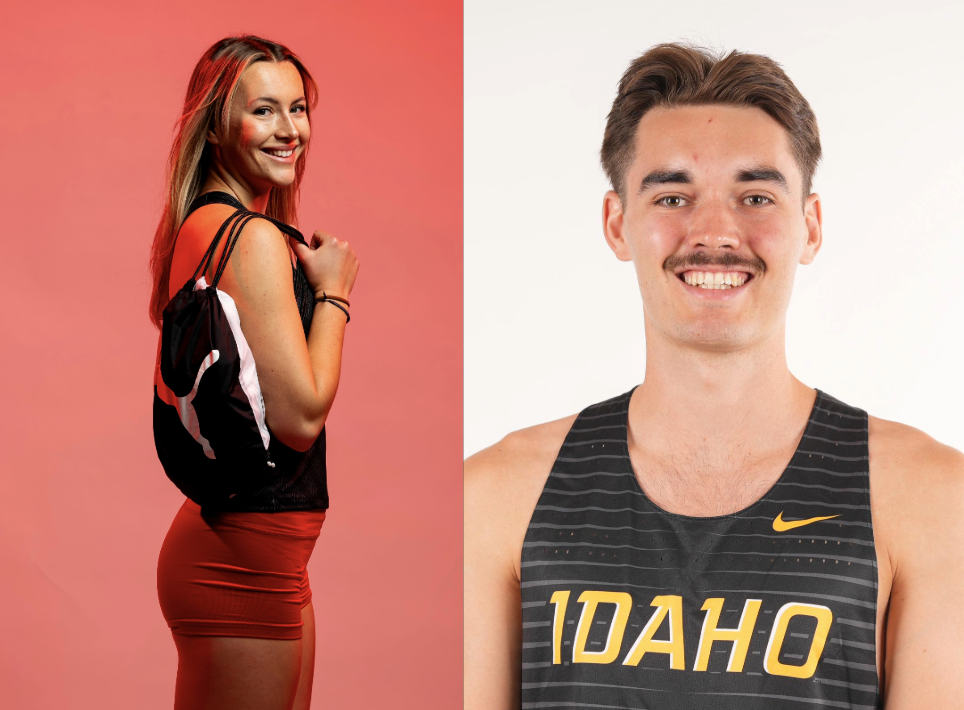
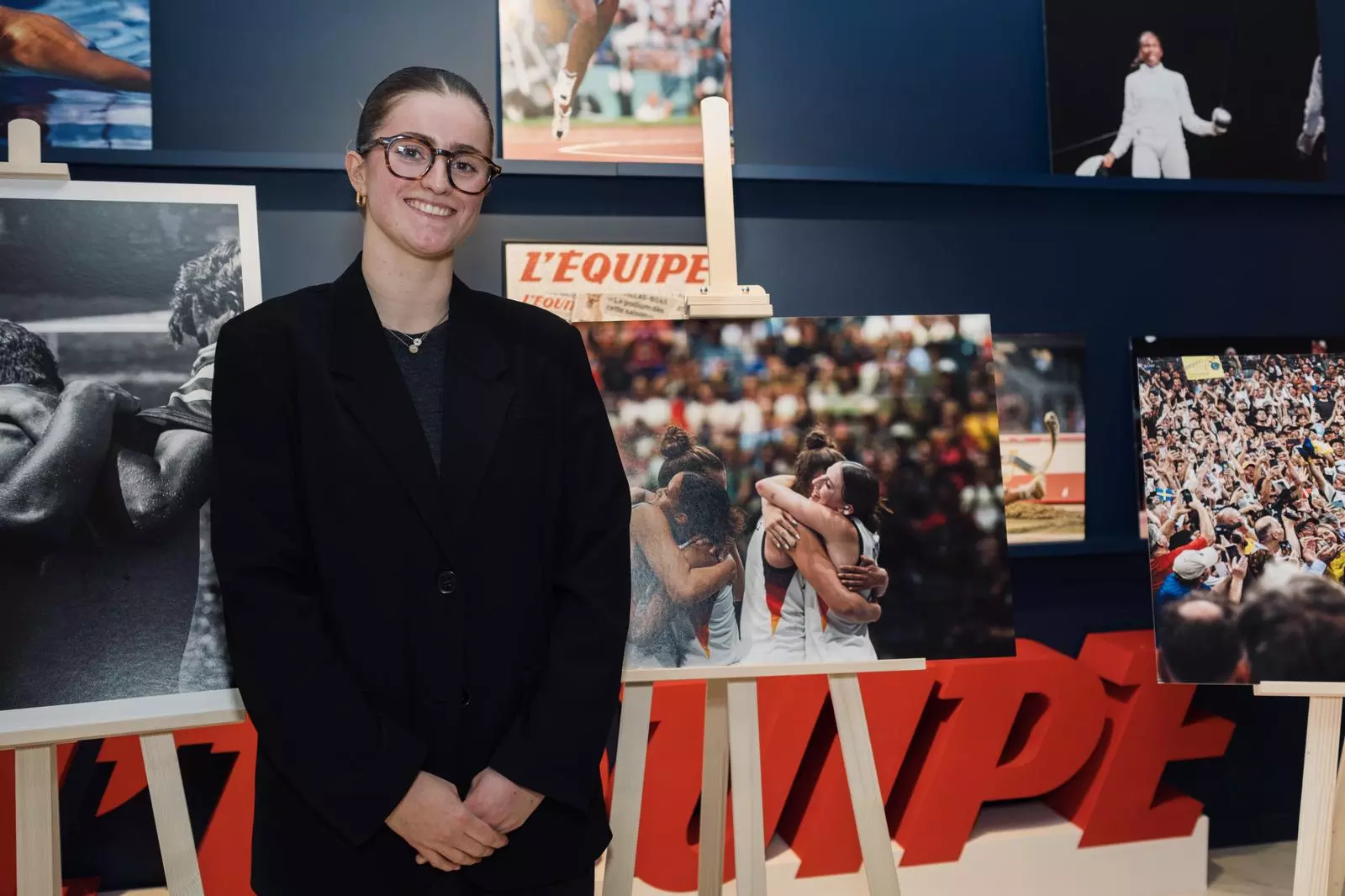
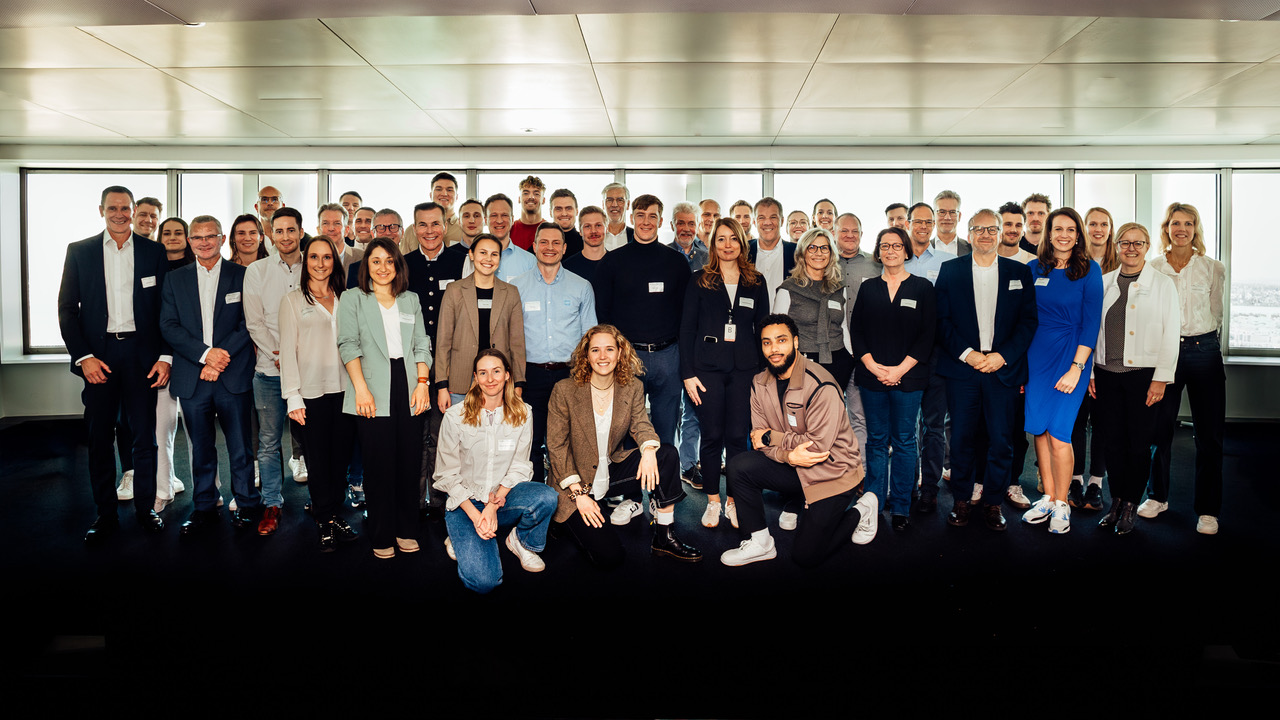
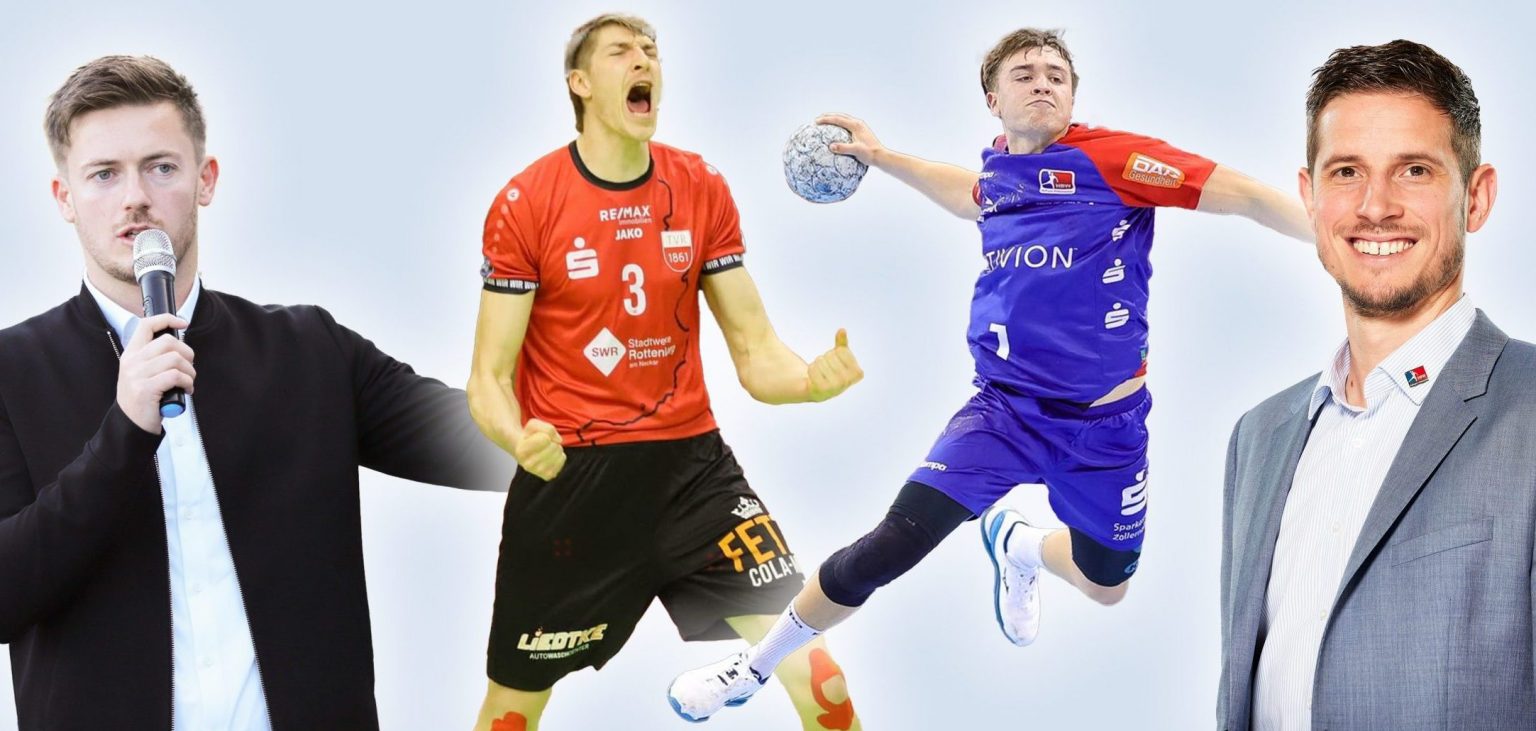
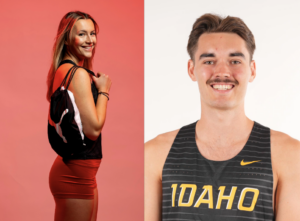
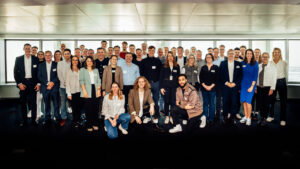
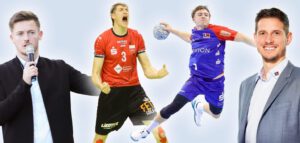
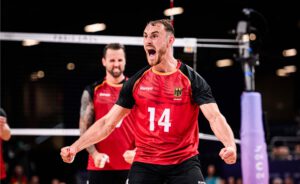

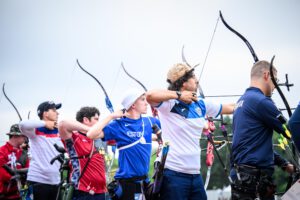
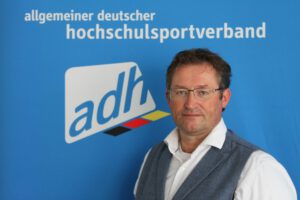


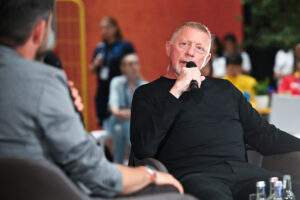
Post Comment